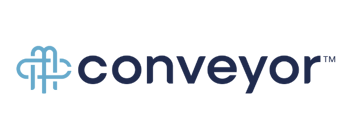If you want your company to gain market share and drive more leads (who doesn’t?), it’s wise to have an effective marketing strategy in place—and hiring a SaaS market agency well-versed in these strategies is a great way to do just that.
Key Considerations When Selecting Your SaaS Marketing Agency
As a SaaS company, there are some core areas where your selected marketing agency should shine, including:

In the rest of the article, we’ll dive into the details and talk through how to look at and evaluate these considerations.
Consider: What Do You Need from Your SaaS Marketing?
There are general rules you should be familiar with when deciding whether you’re ready to outsource your marketing. For SaaS, an essential item to add to that list is ensuring you have a product that’s ready to be marketed. Don’t get ahead of your software; great marketing can get people in the door, but if your product isn’t ready for them, you’ll lose potential growth (along with your marketing investment).
If you’re in the right place to consider outsourcing, start with some reflection on what you actually need your marketing to address. You’ll be in a much better position to evaluate what a potential partner can offer you if you have a clear understanding of where you need help.
Some common SaaS challenges and how marketing agencies address them include:
- Stagnant Monthly Recurring Revenue (MRR) — Look for agencies that support demand generation, messaging, funnel optimization, scalable growth plans and persona research.
- Low conversions from trials/demos to paid offers — Look for support with nurture sequences, messaging, retargeting and lead scoring to push more users from trial to subscription.
- High Customer Acquisition Costs (CAC) — Seek support for paid media, targeting, channel testing and conversion rate optimization.
- High churn rate or low Net Revenue Retention (NRR) — Keep customers engaged with your services with engagement tactics that nurture users post-conversion and focus on customer retention and success.
- Low leads from content assets — Find an agency that has expertise in SaaS content marketing, SEO and full-funnel conversion strategies.
- Expanding into new markets — Look for agencies that can help you target different types of businesses (e.g., SMB vs. enterprise), regions and personas.
What to Look For When You Start Your Search
At this early stage, your priority is finding suitable options for your needs. Keep in mind that these are just suggestions to help you look in the right direction — you’ll want to dig deeper into all of these areas when you actually communicate with your potential partners.
SaaS Expertise & Experience
You don’t have to limit your search to agencies that deal exclusively with SaaS, but you should focus on finding a team that has experience marketing SaaS solutions. Check their case studies, customer testimonials, and any other social proof they offer to see how other SaaS companies have done with them. You may even be able to reach out to previous clients for feedback.
A Data-Driven Approach
Nearly every agency these days says they offer a data-driven approach, so don’t just take their word for it. You can tell if this is actually an important part of their strategy by checking case studies and service pages and looking at how they measure success. Hard metrics like visits, year-over-year growth, and so on suggest more competence with data than soft “metrics” that can’t be measured.
Breadth & Depth of Offerings
If you have very few in-house marketing resources, you may need to choose an agency that has a broader range of services (but still has deep experience in those services). Just make sure that the agencies you consider can handle what you need; think about what type of SaaS marketing growth you’re looking for and what strategies are likely to address those needs.
Tech and Tool Use
A lot of agencies have content on their sites about the tools they use. It’s a good idea to check out what they’re proficient in and get a sense of their comfort level with technology (and talking about it). This is especially important if you’re already working with certain platforms that you need your marketing team to be comfortable with. Just bear in mind that this may be something worth asking directly about; not all agencies list every platform they work with.
How to Assess a SaaS Agency Based on the Questions They Ask You
Once you have some potential candidates narrowed down, you’ll likely be ready to start talking to your potential SaaS marketing agencies. Often, you can learn fairly early whether an agency is right for you; the answer lies in the questions that the agency asks during your initial exploratory discussions with them.
1. Do They Ask For Details About Your Sales Process?
A good agency knows that a completely touchless, self-served sales process will require a much different strategy than one that requires significant interaction with a salesperson. The way you sell your product influences every step of the marketing process: the people you’ll want to attract, the way you’ll nurture them, and how you’ll engage them.
Your initial call with your SaaS marketing agency should include a discussion that gets into this level of detail. If it doesn’t, ask how they approach marketing different SaaS models. You want to learn whether you’re dealing with people who really know your area and audience. How they answer questions about specific tactics in different contexts will clue you into their actual SaaS experience.
2. Do They Steer You Toward the Buyer’s Perspective and Promote Transparency?
You want your buyer to know about all of the shiny new features of your software; however, an experienced marketing agency should point out a big piece buyers need to know before anything else: why should they buy your product in the first place?
A good SaaS marketing agency will try to get a detailed picture of the buyer’s journey and help you balance what you believe is great about your product with what your audience really wants: clarity about how your software will make their lives easier. This includes:
- Content marketing and messaging that makes it easy for buyers to find answers to their questions without consulting a salesperson
- Transparent pricing models—good SaaS agencies know that frictionless journeys are better; they’ll encourage you to make information more accessible, not less.
Your agency should also be aware that your buyers may be different from your users. During your call, see if they ask you questions to clarify who uses the software vs. who communicates with your salespeople and makes final purchase decisions.
3. Do They Ask About Critical SaaS Metrics and Your Current Performance?
Your agency should demonstrate knowledge about key SaaS metrics and typical SaaS KPIs, especially those related to customer retention.
SaaS companies tend to have a higher-than-average customer acquisition cost, so your agency needs to emphasize retaining subscribers and taking a long-term perspective on your ROI. Too much focus on short-term goals leads to churn despite a majority of annual subscription revenue coming from existing customers.
Here are a few areas your agency should ask about:
- Customer health score: How do you track this? Do you have automations in place to alert marketing/sales when a customer is at risk of leaving?
- Lead scoring: What do you consider a qualified lead? Does your system account for a “bottomless” sales funnel?
- Demo/trial-to-paid-customer ratio: Are you tracking this? What are your current scores, and do you currently factor this ratio into your lead scoring?
- Net promoter score (NPS): How do you score on surveys? Do you currently look at qualitative metrics like reviews, customer service conversations and social media to assess customer satisfaction?
Selecting the Best Option Based on Your Research
Once you've evaluated multiple agencies and narrowed down your options, the final step is making the right choice. Here are a few final considerations to make before deciding who the best partner is for you.
Consider Projects vs. Retainer Relationships
One of the biggest decisions when hiring a SaaS marketing agency is whether to work on a project basis or a retainer model. Each approach has pros and cons, so you’ll need to decide what makes the most sense for you. (In general, projects are for short-term tactical needs and retainers are for long-term sustained growth and conversion optimization).
When evaluating specific agencies, ask them to help you explore what a project-based vs. retainer-based engagement looks like with them. Some agencies may offer the option of starting with a small project (like a paid media test or content sprint) before you commit to a long-term partnership.
Project Your ROI
Marketing agency costs can vary significantly based on expertise, services offered, and engagement length. What’s essential to consider is the ROI. Does the agency clearly outline how you’ll see ROI, or do they stick to implications and vague suggestions?
Ask about their strategies for ROI-driving tactics, including lowering customer acquisition costs and improving monthly recurring revenue.
Look for Red Flags
As with any relationship, looking out for red flags is key. There are a few warning signs you can pick up on before signing a marketing agency that you should look out for:
- Promises of quick results: Marketing isn’t fast; your agency shouldn’t promise overnight results. If you’re relying on organic traffic to drive leads, a reasonable timeline will be on the order of months, not days or weeks.
- No transparency: Your agency needs to have some sort of framework in place to demonstrate performance. Don’t sign on with a team that can’t tell you how you’ll know if the engagement is working.
- Cookie-cutter approaches: SaaS is extremely broad; there is no single SaaS marketing strategy that will always work. If you feel like the specifics of your audience and offering aren’t playing a role in the proposed plan, start digging into the agency’s experience with other SaaS clients.
- Unfamiliarity with SaaS terminology: If you’ve marketed for SaaS before, odds are you’re familiar with MRR, CAC, LTV, churn, activation rate, etc. If these terms are confusing your points of contact, they may not have deep personal experience in the field.
Start Your Search for the Right SaaS Partner
As you begin your search, remember to keep your needs and goals in mind and take a critical approach to evaluating your potential partners’ SaaS expertise and data tracking.
If you’re ready to start evaluating your options now, start with us! Visit our SaaS industry page to get an overview of our approach, or dive into a case study on our work with a medical management SaaS platform that resulted in a 286% increase in contact-to-customer conversion rate, 931% increase in lead-to-MQL conversion rate and a 61% increase in organic website sessions: view our SaaS case study.





